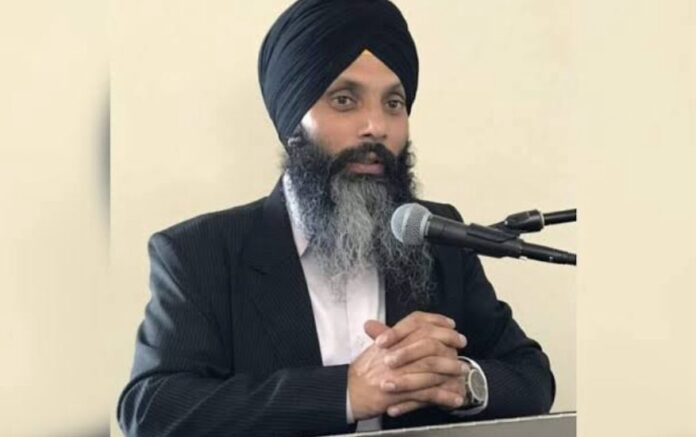In a startling revelation, Canada has accused India of playing a role in the assassination of Sikh separatist leader Hardeep Singh Nijjar on Canadian soil, leading to a diplomatic crisis between the two nations. The accusation has raised concerns about India’s “network of extra-territorial killings” going global, as stated by the Foreign Office (FO) spokesperson Mumtaz Zahra Baloch. The situation has escalated to the point where Canada expelled India’s top intelligence agent in response to the allegations. Nijjar, a supporter of an independent Khalistani state, was designated as a “terrorist” by India in July 2020, although he denied these charges. This incident underscores the delicate balance of sovereignty and international relations as both countries grapple with the aftermath of this shocking revelation.
Advisory for Indian Nationals and Indian Students in Canada:https://t.co/zboZDH83iw pic.twitter.com/7YjzKbZBIK
— Arindam Bagchi (@MEAIndia) September 20, 2023
Global Diplomatic Fallout
Canada’s assertion of Indian involvement in the assassination of Hardeep Singh Nijjar has sent shockwaves through the international community. The allegation centers on the murder of Nijjar, a prominent Sikh separatist leader, which occurred in Surrey, Canada, in June. Canada is actively pursuing credible evidence linking Indian government agents to this high-profile killing, a move that prompted the expulsion of India’s top intelligence official by Ottawa.
Canadian Prime Minister Justin Trudeau has voiced his concerns, stating that any foreign government’s involvement in the killing of a Canadian citizen constitutes a severe violation of Canada’s sovereignty. He has urged India to treat this revelation with the utmost seriousness, demanding accountability for those responsible.
In a swift response, India retaliated by expelling a Canadian diplomat with a five-day notice to leave the country. India categorically rejected Canada’s allegations, dismissing them as “absurd and motivated.” Instead, India called on Canada to take legal action against anti-Indian elements operating within its borders.
Escalating Tensions and Historical Context
The situation has deep historical roots, with the FO spokesperson in Islamabad highlighting India’s intelligence agency, Research and Analysis Wing (RAW), as having a history of “abductions and assassinations in South Asia.” Pakistan has been a target of such activities, including a comprehensive dossier released in December last year, providing concrete evidence of India’s involvement in a 2021 attack in Lahore. Additionally, in 2016, a high-ranking Indian military officer, Kulbhushan Jadhav, confessed to directing, financing, and executing acts of terror and sabotage in Pakistan.
Baloch, the FO spokesperson, emphasized that the alleged assassination of a Canadian national on Canadian soil represents a clear violation of international law and the UN principle of state sovereignty. She labeled it a reckless and irresponsible act that calls into question India’s credibility as a reliable international partner, challenging its claims of enhanced global responsibilities.
The Indian National Congress has always believed that our country's fight against terrorism has to be uncompromising, especially when terrorism threatens India's sovereignty, unity and integrity. Our country's interests and concerns must be kept paramount at all times.#Canada
— Jairam Ramesh (@Jairam_Ramesh) September 19, 2023
A Resolute Stand
In response to statements by Indian civil and military leadership against Pakistan, Baloch asserted that Pakistan possesses the capacity and determination to defend itself. This sentiment echoes Foreign Secretary Syrus Qazi’s remarks, where he noted that Pakistan was not surprised by Canada’s accusation. He cited the capture of a serving naval intelligence officer on Pakistani soil who admitted to attempting to create instability.
Qazi further underscored India’s historical involvement in fomenting instability in Pakistan, citing the case of Kulbhushan Jadhav as a living example. He stated that Indian interference has been a constant source of tension in the region and that Pakistan is resolute in protecting its sovereignty.
Escalating Tensions and Implications
The conflict over the alleged involvement of Indian agents in the killing of Hardeep Singh Nijjar is the latest chapter in an escalating row between India and Canada. Signs of a brewing crisis were evident before the revelation of the probe into Nijjar’s death, with Indian Prime Minister Narendra Modi expressing concerns about continuing anti-India activities in Canada during a meeting with Trudeau at the G20. Additionally, Canada suspended negotiations for a free-trade agreement with India, and its trade minister canceled a planned trip to the country.
Travel Advisories and International Concerns
The diplomatic standoff has extended to travel advisories issued by both countries. India has warned its citizens against visiting certain parts of Canada due to concerns about “politically condoned hate crimes and criminal violence,” particularly targeting Indian diplomats and sections of the Indian community opposing anti-India agendas. On the other hand, Canada has updated its advisory for travel to India, advising against visiting the Union Territory of Jammu and Kashmir due to security threats.
Global Ramifications and Political Backing
The political landscape surrounding this controversy is complex. India’s main opposition party, the Congress party, has supported the government’s rejection of Canada’s allegations and emphasized the need to defend India’s sovereignty against threats. They criticized Trudeau’s stance and his defense of Hardeep Singh Nijjar, who was declared a terrorist by India.
The Sikh separatist movement, which seeks the creation of Khalistan, continues to be a contentious issue. The insurgency in the 1980s and 1990s in India’s northern state of Punjab resulted in significant loss of life. While Congress led the fight against the separatists at the time, New Delhi remains wary of any revival of the movement.
The accusation of India’s involvement in the killing of Sikh separatist leader Hardeep Singh Nijjar on Canadian soil has ignited a global diplomatic crisis, raising concerns about India’s alleged “network of extra-territorial killings.” This incident underscores the complexities of sovereignty and international relations in an interconnected world. As tensions escalate between India and Canada, the international community watches closely to see how this dispute unfolds and its potential ramifications for global diplomacy.


